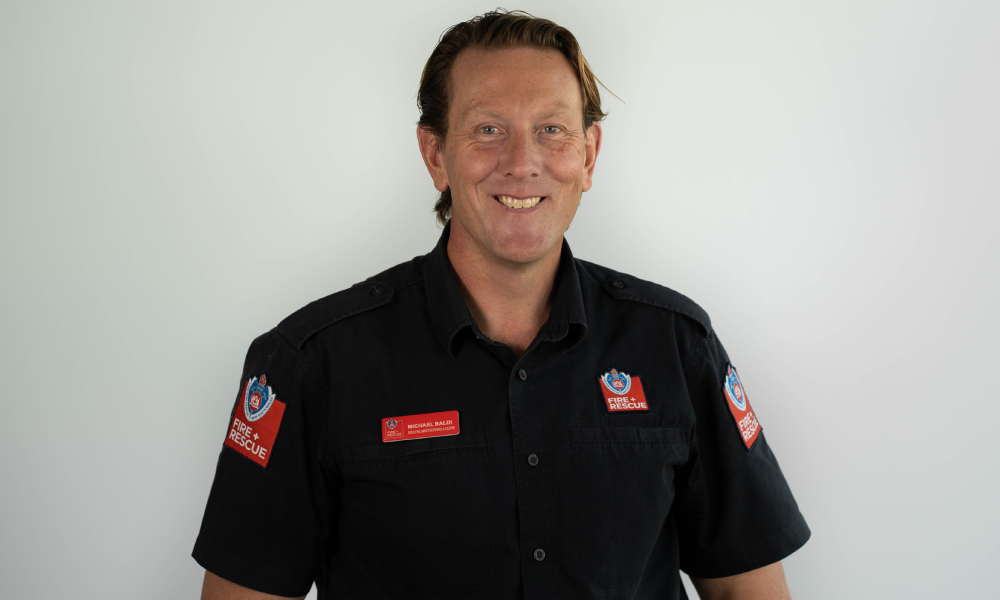
HRD talks with Michael Baldi, Fire and Rescue NSW’s executive director of people and culture, on responding to epic challenges

First came the historic bushfires.
Then floods.
“Then in March came COVID-19,” Michael Baldi, Fire and Rescue NSW’s executive director of people and culture, told HRD.
It has been an extraordinary 14 months for FRNSW’s 8,000 employees with the catastrophic bushfire season beginning in July 2019 and ending in February when torrential rain hit the state, led to flash flooding, damaged homes and forced life-and-death water rescues.
In March the FRNSW responded to COVID-19 by introducing major changes and protocols for its firefighters, administration and trade staff.
Read more: Defamation in the workplace: what you need to know
The FRNSW sets up incident management teams to respond to major incidents.
This same approach was created for their COVID-19 response.
“It was a really good approach to have one central point of contact and coordination for all of the COVID-19 impacts on the business,” he said.
It also meant the Fire Brigade Employees Union had a single place to ask questions and receive a consistent response.
“We needed to be on the front foot in engagement with the union,” Baldi said.
“We actually developed some joint strategies and a working party, where we issued joint statements on our approach to how to manage COVID.”
Read more: Social media storm prompts defamation suit
Getting to work was one significant challenge for some FRNSW firefighters during the pandemic.
Firefighters perform a 24-hour shift, have a day off, work a second 24-hour shift and have five days break between the commencement of their next shift.
The schedule allows some to live in south-east Queensland or Victoria and fly to NSW for their shifts.
When COVID-19 forced the closure of NSW’s borders with Queensland and Victoria firefighters who live interstate were stranded. About 50 were in south-east Queensland.
“With government restrictions it was quite difficult and this meant we were faced with a number of HR challenges about how staff could get to and from work,” he said.
Some were eligible for the NSW government’s special “COVID leave”.
“Our approach was to support leave, roster flexibility, and also to look for alternative options with employment in other areas of the business – project or media and communications work,” Baldi said.
New COVID-19 processes and protocols had to be implemented for firefighters responding to emergencies, including calls to quarantine hotels.
“We put in a lot of protocols with the NSW Police and other state emergency coordinating committees about how they respond to an emergency situation, or an automatic fire alarm at somebody’s home or a hotel,” Baldi said.
“We developed a series of questions that would be able to be asked by the crew attending an incident to get the information from the hotel as to how many people had COVID and don the necessary protective clothing and gear.
“The protocol questions allowed us to take a very measured approach and reduce the risk of exposure and infection for our firefighters.”
FRNSW has only had four firefighters test positive for COVID-19. They were in the early stages of the pandemic and the four had just returned from overseas trips.
NSWFR’s 500 admin staff are working from home and trade staff have more flexible hours, adhere to social distancing when they undertake fleet maintenance and property services and fulfill their admin work at home.
Working from home has led to “a lot of benefits”, including an improvement in the quality of work and output.
“We have seen a more conscious effort to improve communication and we have had feedback that communication from management and senior leaders has really improved,” Baldi said.
“By working at home, our people have been able to dedicate time and focus without interruption to produce quality work and that has been really positive.”